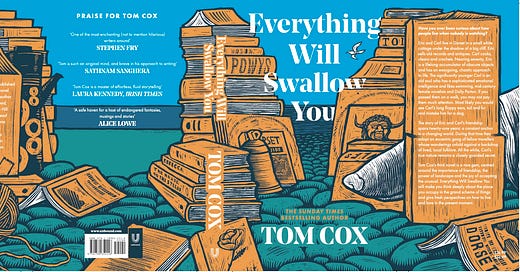Hard Facts
The difficult truths I'm learning right now about my choice to publish books in an uncompromising and independent way
I wanted to show you all Joe McLaren’s full, finished cover design for Everything Will Swallow You, which came hot off the press this morning. It’s all I hoped it would be and more. Joe always seems to instinctively grasp the feel of what I write and, were it entirely up to me, he’d be designing my books from here to eternity. The Amazon page is now als…
Keep reading with a 7-day free trial
Subscribe to The Villager to keep reading this post and get 7 days of free access to the full post archives.




